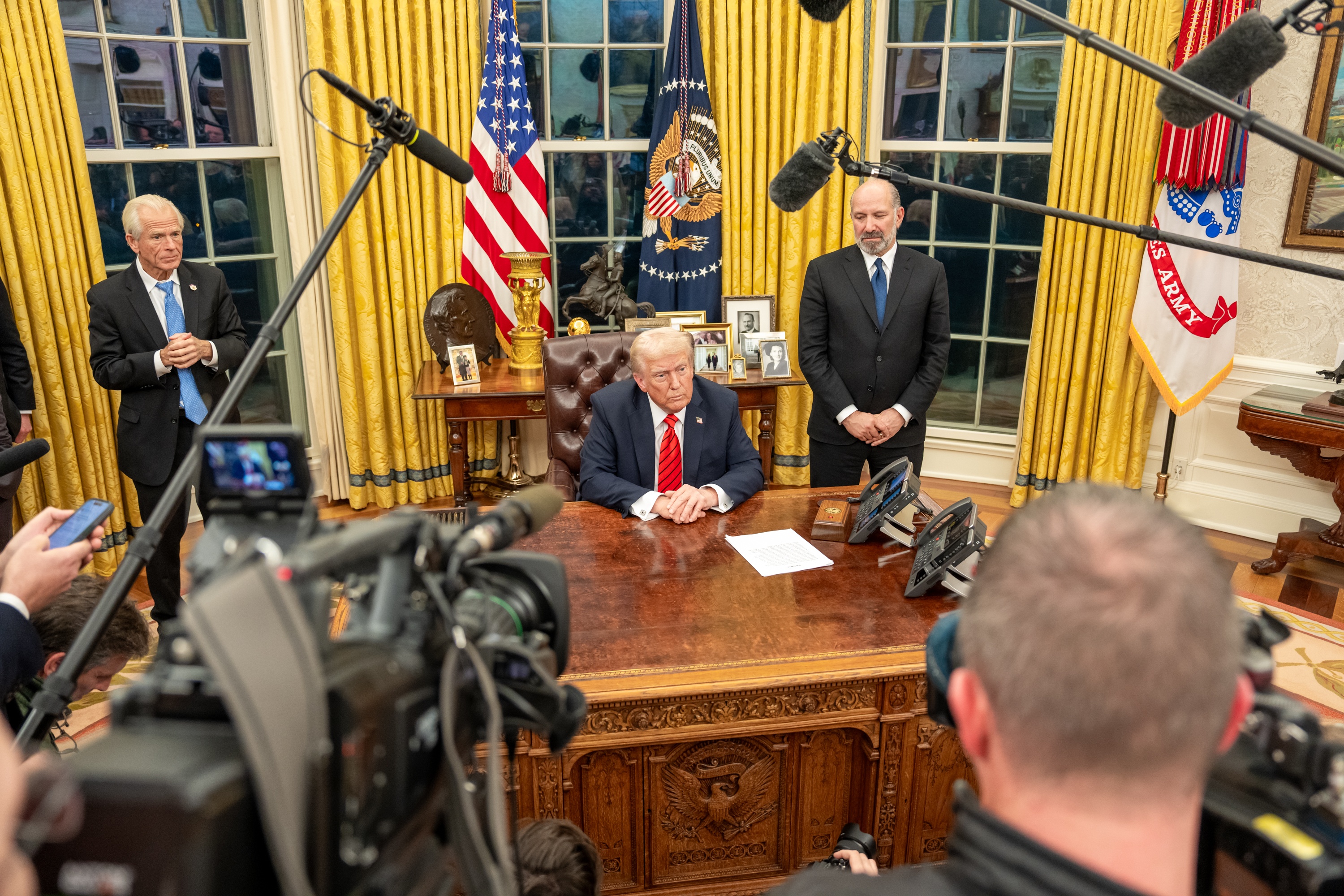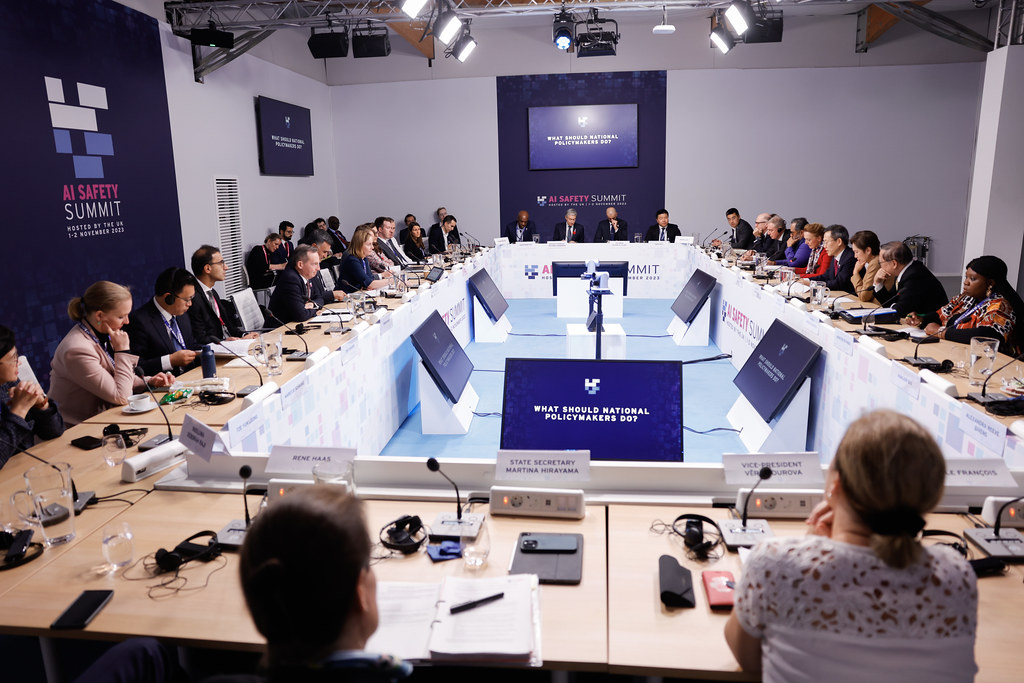Today's Headlines and Commentary
Five years of failed efforts to end the fighting in Syria have persuaded many observers that the war may not be resolvable any time soon. But the Associated Press reports that this week’s ceasefire has offered a glimpse of hope for Syria, as the interests of the region’s major actors—Turkey, Russia, Iran, and the United States—begin to converge.
Published by The Lawfare Institute
in Cooperation With

Five years of failed efforts to end the fighting in Syria have persuaded many observers that the war may not be resolvable any time soon. But the Associated Press reports that this week’s ceasefire has offered a glimpse of hope for Syria, as the interests of the region’s major actors—Turkey, Russia, Iran, and the United States—begin to converge. Moscow and Washington have agreed to extend the ceasefire for another two days. While it appears increasingly likely that Syrian President Bashar al-Assad will stay in power, experts caution that Assad’s vow to reclaim “every inch” of territory he has lost during the war may be a primary obstacle to any political settlement.
Neither Syrian government nor rebel fighters have retreated from an important road leading to Aleppo, a crucial step for the war-torn city to receive aid under the terms of the peace deal. Security guarantees are needed from both sides before the United Nations will send the 20 trucks full of humanitarian supplies and their drivers. U.N. Special Envoy for Syria Staffan de Mistura said both the government and some opposition forces were to blame for the standoff over aid deliveries to the rebel-held part of the city. The Wall Street Journal has more.
Russia urged Syria’s moderate rebels to separate from “terrorists” such as Jabhat Fateh al-Sham, the erstwhile al Qaeda franchise in Syria, and the Islamic State. Without such a separation, the Kremlin said, the ceasefire would likely fail and political negotiations could not begin. Under the terms of the truce, Russia and the United States are permitted to target Jabhat Fateh al-Sham and ISIS.
Following a New York Times story noting Secretary of Defense Ash Carter’s fierce opposition to the deal, Secretary Carter voiced support for the ceasefire agreement. The Secretary told reporters on Wednesday that the Pentagon “will play whatever role we have with our accustomed excellence” and commended Secretary of State John Kerry for brokering the agreement.
Reuters tells us that the chief of the Russian army's general staff, Valery Gerasimov, met his Turkish counterpart in Ankara on Thursday for talks on military cooperation and Syria. Gerasimov’s visit is another sign of Turkey’s warming relationship with Russia and a renewed pragmatism in Turkish foreign policy. Turkey and Russia have been backing competing sides in the Syrian civil war, with relations reaching a nadir last November after Turkish forces shot down a Russian warplane that entered Turkish airspace.
The Economist explains why the fighting in Syria has largely concentrated in the country’s north. The Carter Center has calculated that only five percent of the fighting has occurred in the south since February. But this dynamic may switch as Turkish troops continue to move into northern Syria, the Islamic State nears complete defeat, and Bashar al-Assad’s troops turn their attention to rebel holdings in the south.
The Journal writes that Iraqi Kurds have pushed forward with renewed vigor to retake land from Islamic State in recent weeks. Kurdish-held territory has expanded by roughly 50 percent in the past two years, alarming leading Iraqis concerned over the possibility of Kurdish independence or resentment from Sunni residents of Kurdish-held areas. Though Iraqi Prime Minister Haider Al-Abadi has warned the Kurds not to move further into the Islamic State stronghold of Mosul unilaterally, the United States has argued that politics must come second to the battle against ISIS.
Yemeni security forces said a drone strike by the U.S. military struck a car traveling in the southern Bayda province. Five suspected al-Qaeda fighters were killed.
Reuters relays the remarks of former Afghan president Hamid Karzai, who sharply criticised his successor’s decision to give new authorities to the U.S. military to fight Taliban insurgents. Karzai said the move, which improves the U.S. military’s capacity to provide ground and air support to Afghan forces, is an infringement of the country’s sovereignty. The former leader's opposition reflects broader unease among Afghans who believe innocent people have been killed in air attacks targeting militants.
Iran’s foreign minister Mohammed Javad Zarif will meet with his counterparts from the United States, China, France, Britain, Germany, and Russia on the sidelines of the United Nations General Assembly on September 22, according to the Associated Press. Zarif called a ministerial-level meeting between the signatories of the landmark nuclear deal last summer to discuss banking sanctions. Tehran remains frustrated that the country has not received the full dividends of sanctions relief because U.S. companies are still hesitant to invest in its market.
The Associated Press notifies us that the Israeli military struck three Hamas targets in the Gaza Strip in response to rocket fire toward southern Israel. There were no reports of injuries or fatalities from either strike. Hamas and Israel have largely upheld a ceasefire that was signed in the summer of 2014 after a 50-day war.
A day after signing a $38 billion military aid deal with Israel, President Barack Obama renewed his call for a two-state solution to the Israeli-Palestinian conflict, arguing that such a solution is Israel’s security. Obama’s strongly-worded statement urging a two-state solution has led analysts to speculate that the president may make an effort to lay out a blueprint for a possible peace agreement after the presidential election.
The Associated Press reports that both Ukrainian forces and Russian separatists in Crimea have accused each other of violating a ceasefire that was set to begin on Wednesday at midnight. Though separatist rebels declared a unilateral ceasefire on Tuesday, Ukrainian military spokesman Oleksander Motuzyanik said three servicemen had been wounded after that rebels violated the ceasefire six times. Russian state television on Thursday quoted rebel officials as saying their forces came under mortar fire earlier that day.
German Foreign Minister Frank-Walter Steinmeyer and his French counterpart Jean-Marc Ayrault visited Ukraine on Wednesday to shore up the floundering 2015 Minsk peace deal. The two European foreign ministers met with Ukrainian president Petro Poroshenko to discuss ways of securing the ceasefire and implementing the Minsk agreement, which provides for incorporation of the country’s separatist eastern regions as autonomous areas within the Ukrainian state. The agreement is widely unpopular in Ukraine, and critics have forced Poroshenko to drag his feet on seeking the parliament’s approval for implementing these measures.
The Washington Post notes that U.S. intelligence agencies are expanding spying operations against Russia on a greater scale than at any time since the end of the Cold War. The intelligence community’s enhanced scrutiny of Russia comes as Moscow and Washington have repeatedly clashed in Ukraine and Syria. Russia’s intelligence agents have also been the suspected perpetrators behind a series of high-profile espionage operations in both the United States and western Europe, including the hacking of the Democrat National Committee’s emails.
FBI Director James Comey pushed back on claims that the United States is not doing enough to repel Russian hackers by intimating that U.S. operatives could respond in ways that are outside the public domain. He said that U.S. responses to cyberattacks should depend and vary on the circumstances. Comey cited the White House’s decision to charge Chinese hackers in absentia last year as an example of an instance when explicit measures are preferable to more subtle responses.
Kenneth Roth, the executive director of Human Rights Watch, and Salil Shetty, the secretary general of Amnesty International, came together to write a column in the New York Times urging that the United States pardon Edward Snowden. They argue that Snowden’s disclosures have triggered an important public policy debate and encouraged important changes in how the intelligence community collects information. But Politico predicts that both this administration and its successor will remain unwilling to pardon Snowden.
Former Guantanamo detainee Abu Wa’el Dhiab has awakened from a coma induced by a hunger strike he began to express his unhappiness over being resettled in Uruguay and his desire to leave the country. Dhiab, whom Uruguay accepted as a refugee along with five other transferees, drew international attention for the hunger strikes he conducted during his 12 years of confinement at the U.S. detention facilities at Guantanamo Bay. Uruguay is currently negotiating with Muslim-majority countries to transfer him.
A report issued by the Office of Director of National Intelligence disclosed that two more people released by the Obama administration from Guantanamo joined militant groups in the first six months of 2016. A total of nine people freed from Guantanamo have ended up on the battlefield since President Barack Obama took office in 2009 according to the DNI. The Guardian has more.
The Wall Street Journal reports that Philippine President Rodrigo Duterte’s recent comments are being interpreted with concern in Washington and confusion elsewhere in the region. U.S. policymakers are unsure whether Duterte plans to reverse the Philippines’ close military partnership with the United States, while Japan and Australia are also surprised that Duterte has warmed up to Beijing so soon after an international tribunal ruled that China had violated Philippines’ territorial integrity. Even onlookers in China are confused by Duterte’s volatility and the confusing communications practices his administration has put in place.
U.N. Secretary-General Ban Ki Moon warned that North Korea’s repeated nuclear tests have destabilized the Korean peninsula to an unprecedented degree. A former foreign minister for South Korea, Ban said, “Never in the past have I ever seen such kind of heightened tensions on the Korean Peninsula.” He also called on the United States and China to cooperate in resolving this issue. The U.N. Security Council had issued a series of biting sanctions on North Korea in March but Pyongyang has only responded to them with a series of dismissive boasts.
ICYMI: Yesterday, on Lawfare
Benjamin Wittes posted a livestream to a conference that the Department of Justice hosted with the Center for Strategic and International Studies commemorating the ten-year anniversary of the National Security Division.
Jack Goldsmith urged the president to veto the Justice Against Sponsors of Terrorism Act because it both weakens sovereign immunity but also makes it difficult for families to actually recover any money from rightful claims.
Matt Tait responded to a critique of one of his earlier posts on Apple’s Cloud Key Vault.
Timothy Edgar told readers why he signed a letter recommending that the president pardon Edward Snowden because of the policy changes he helped spark.
Email the Roundup Team noteworthy law and security-related articles to include, and follow us on Twitter and Facebook for additional commentary on these issues. Sign up to receive Lawfare in your inbox. Visit our Events Calendar to learn about upcoming national security events, and check out relevant job openings on our Job Board.





